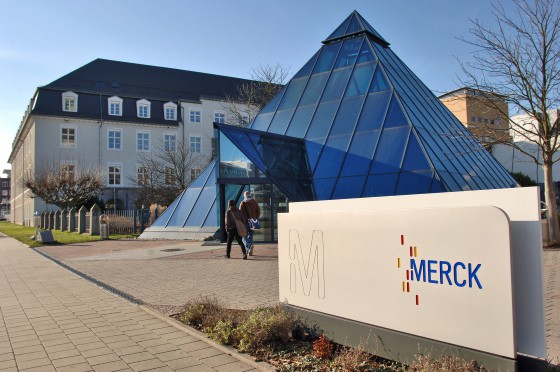
Merck KGaA is putting its BTK inhibitor evobrutinib to the test in two phase 3 multiple sclerosis (MS) trials, the first drug in the class to reach that stage for the neurodegenerative illness.
The decision comes despite debate about the efficacy of the drug in its main phase 2 trial, which was published in the New England Journal of Medicine during the summer.
The new trials – dubbed EVOLUTION RMS 1 and 2 – will compare twice-daily oral doses of evobrutinib with interferon-beta injections given once a week in patients with relapsing MS, with the primary endpoint being annualised relapse rate after 96 weeks.
If successful, Merck will have a chance to bring forward a new-mechanism therapy for relapsing MS that will compete with blockbuster oral drugs such as Biogen’s Tecfidera (dimethyl fumarate), Novartis’ Gilenya (fingolimod) and Sanofi’s Aubagio (teriflunomide).
It will also have to contend with newer drugs like Roche’s fast-growing Ocrevus (ocrelizumab), Novartis’ Mayzent (siponimod) and potentially Biogen’s Tecfidera follow-up diroximel fumarate (BIIB098).
“Evobrutinib is a potential innovation for people living with MS, as it may offer a novel dual mechanism of action that is thought to impact myeloid cells in addition to B-cells and thus could address MS pathobiology in a fundamentally new way,“ said Merck’s head of R&D Luciano Rossetti.
Merck says evobrutinib met its primary objective in the earlier phase 2 trial, which compared the drug against placebo and revealed a reduction in the total cumulative number of MS lesions at 12, 24 and 48 weeks.
The trial tested three doses of the drug – 25mg and 75mg once daily and 75mg twice-daily – and when Merck first presented the data a year ago it said both 75mg doses had a significant impact on lesions.
However, when the data was published in NEJM, the investigators incorporated adjusted p values for significance that meant that only the middle 75mg once-daily dose had a significant reduction at 12 to 24 weeks.
They concluded “there was no significant difference with placebo for either the 25mg once-daily or 75mg twice-daily dose of evobrutinib, nor in the annualised relapse rate or disability progression at any dose.”
They also flagged a rise in liver enzymes that could bring evobrutinib’s risk:benefit into question if it is also observed in phase 3, and particularly if efficacy turns out to be lower than hoped. Merck says however that the liver enzyme increases reversed after treatment was stopped and had no clinical consequences on patients.
The company is planning to recruit around 1,900 patients into its new trials, with results due in June 2023.
The principal investigator in the EVOLUTION RMS 2 trial – Xavier Montalban of the University of Toronto and St. Michael’s Hospital in Canada and Vall d’Hebron University Hospital in Spain – said there is still a pressing need for drugs with new mechanisms.
“Even with the most effective therapies for RMS, more than 50% of patients experience clinical or subclinical disease activity,” he said.
“Therefore a need still exists for novel oral therapies that address MS pathobiology differently.”




